12 Powerful Benefits of Yoga for Seniors: Relieve Stress and Boost Flexibility
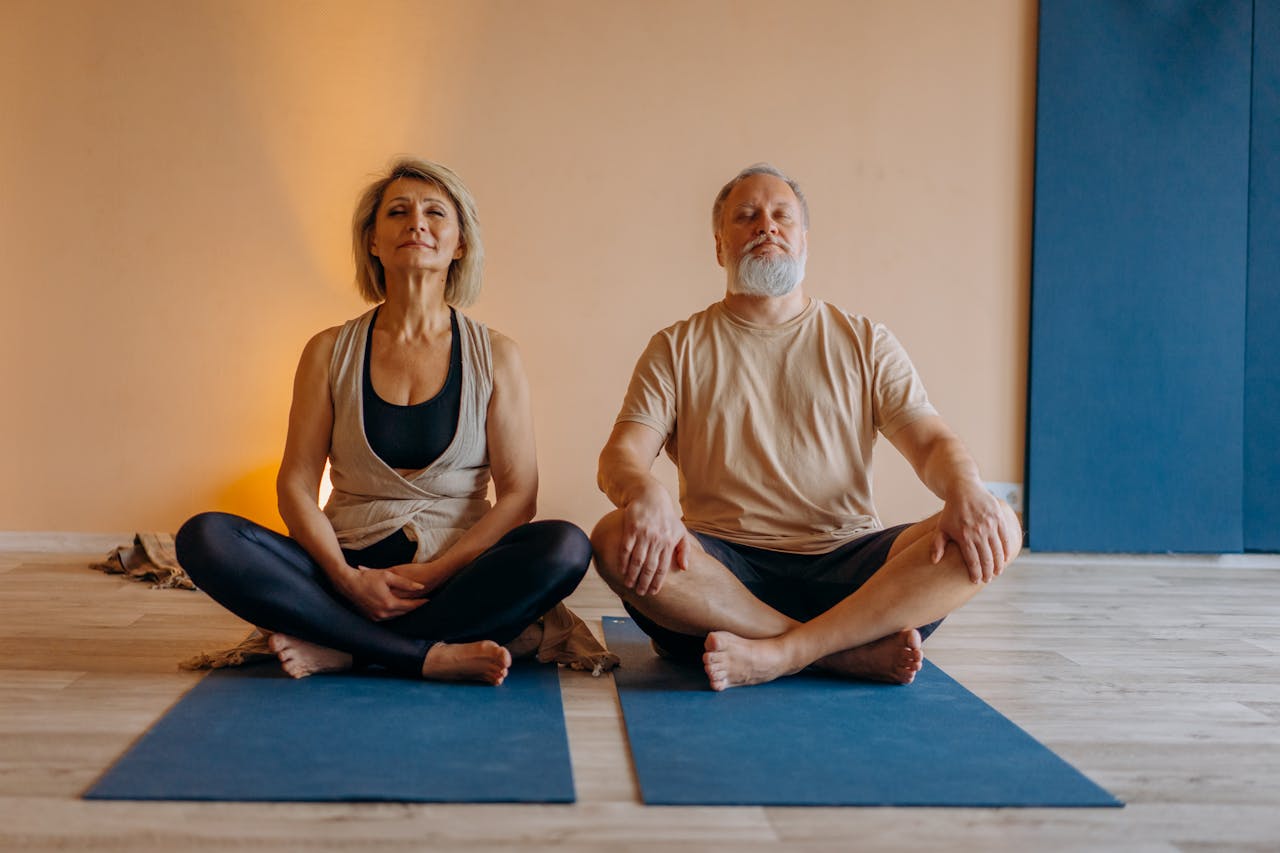
As we age, maintaining physical and mental well-being becomes increasingly important. Yoga, a practice that combines physical postures, breathing exercises, and meditation, offers numerous benefits that can enhance the quality of life for seniors. From relieving stress to boosting flexibility, yoga can be a transformative practice for older adults. Here are 12 powerful benefits of yoga for seniors that demonstrate why it is worth considering as part of a healthy lifestyle.
1. Enhances Flexibility
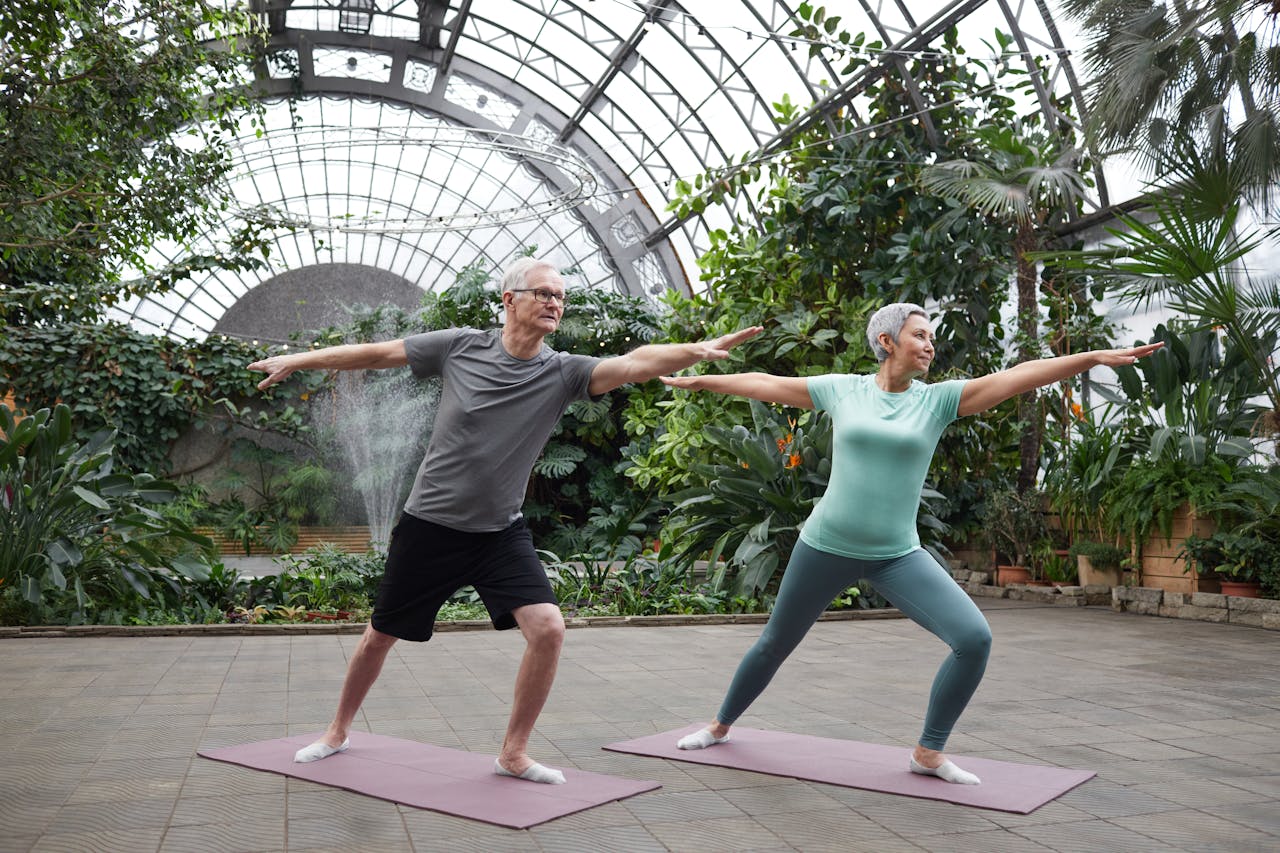
One of the most significant benefits of yoga for seniors is the improvement in flexibility. As we age, our muscles and joints tend to stiffen, which can lead to discomfort and reduced mobility. Regular yoga practice involves a series of gentle stretches that gradually increase flexibility. This enhanced range of motion not only makes daily activities easier but also reduces the risk of injuries. Seniors who practice yoga often report feeling more limber and agile, allowing them to enjoy a wider variety of physical activities. Improved flexibility can significantly enhance the quality of life, enabling seniors to engage in hobbies and routines they love without restrictions.
2. Reduces Stress and Anxiety
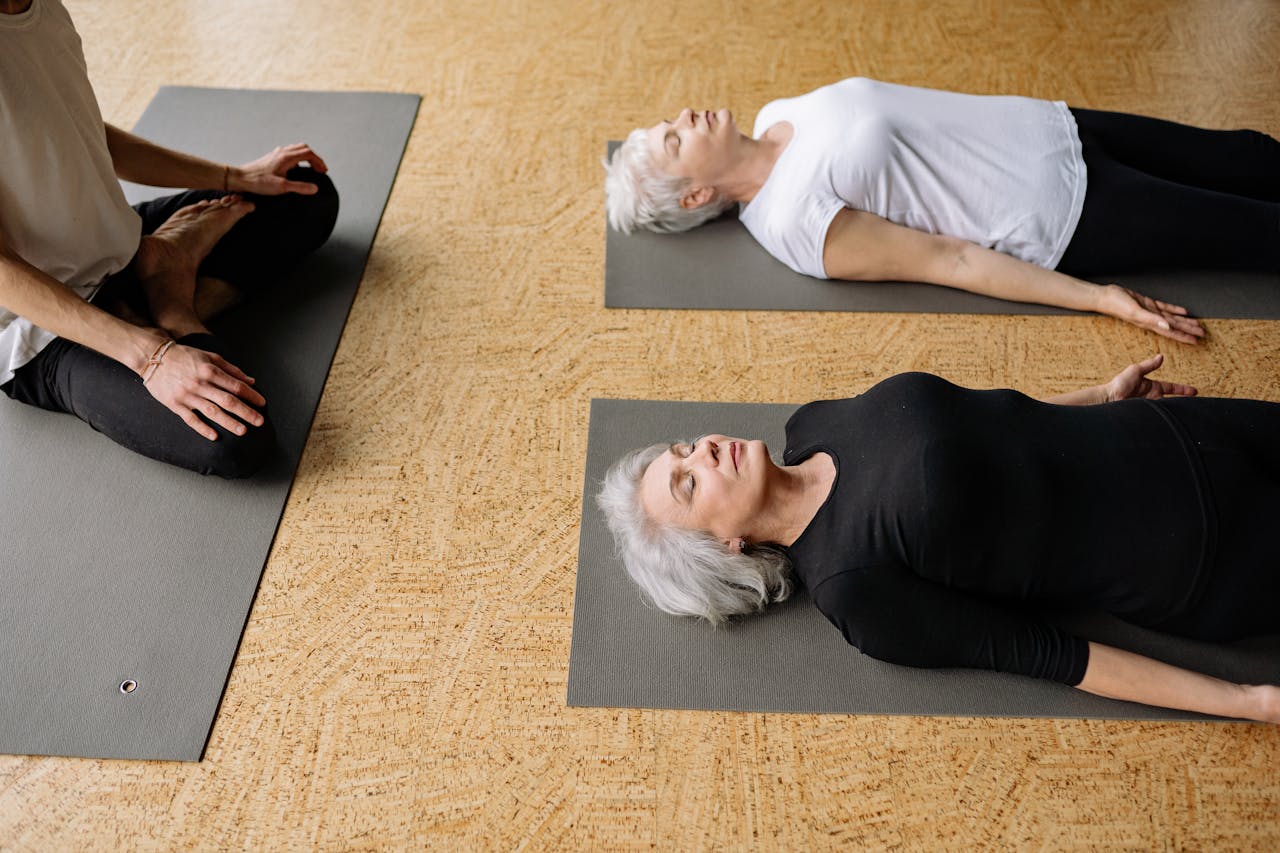
In our fast-paced world, stress can take a toll on our mental and physical health. Yoga provides an effective way to combat stress through its focus on breath control and mindfulness. By encouraging relaxation and promoting a sense of calm, yoga helps seniors manage anxiety and reduce feelings of overwhelm. The meditative aspects of yoga allow participants to connect with their inner selves, fostering a sense of peace and tranquility. As a result, many seniors find that regular yoga practice enhances their emotional well-being and improves their overall outlook on life. This reduction in stress can lead to a healthier mind and body, making yoga a valuable tool for emotional resilience.
3. Improves Balance and Coordination
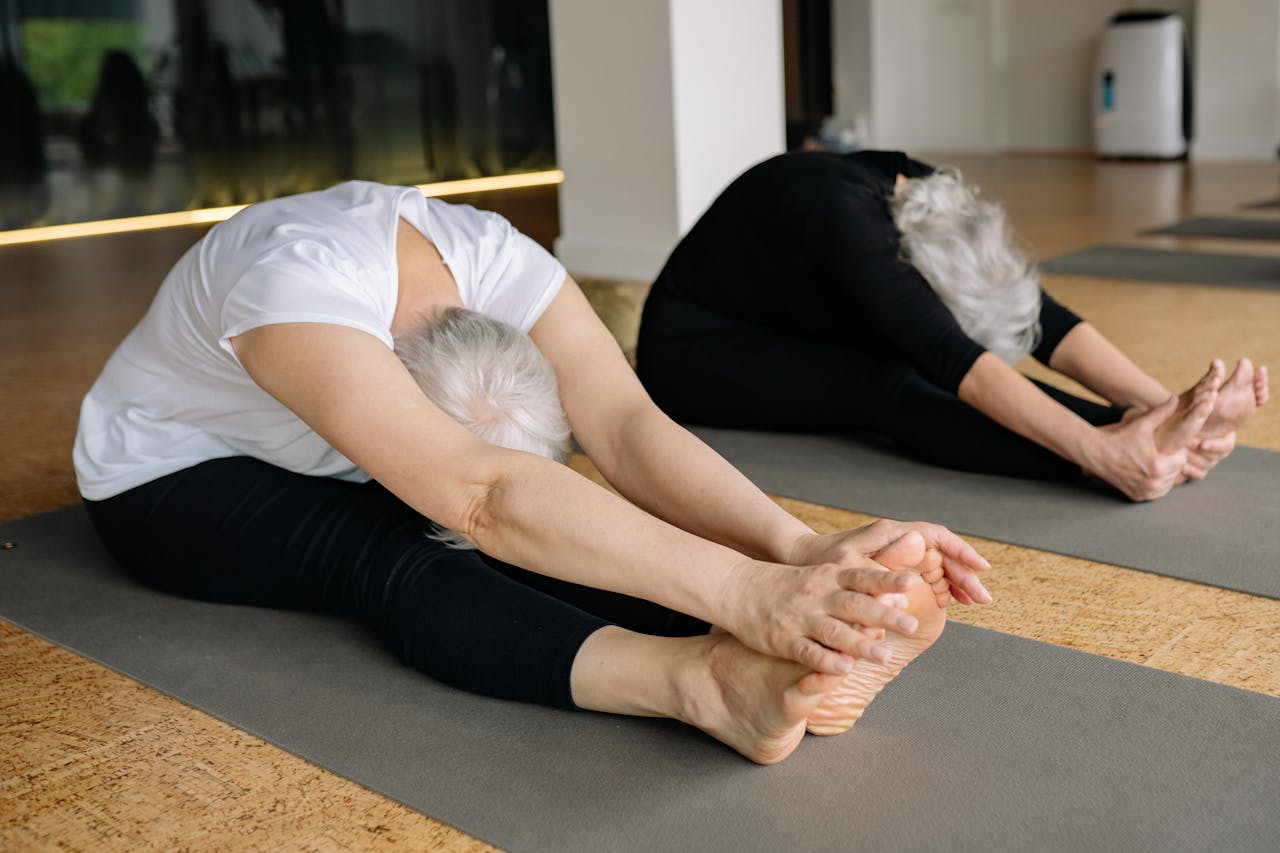
Falls are a significant concern for seniors, often leading to serious injuries. Yoga can help improve balance and coordination through its emphasis on controlled movements and body awareness. Poses that require balance challenge the body to stabilize itself, strengthening the muscles involved in maintaining equilibrium. By practicing yoga regularly, seniors can enhance their proprioception, which is the body’s ability to sense its position in space, leading to improved balance and a reduced risk of falls. This enhancement in stability not only promotes safety but also encourages seniors to engage more fully in their daily activities, fostering independence.
4. Increases Strength
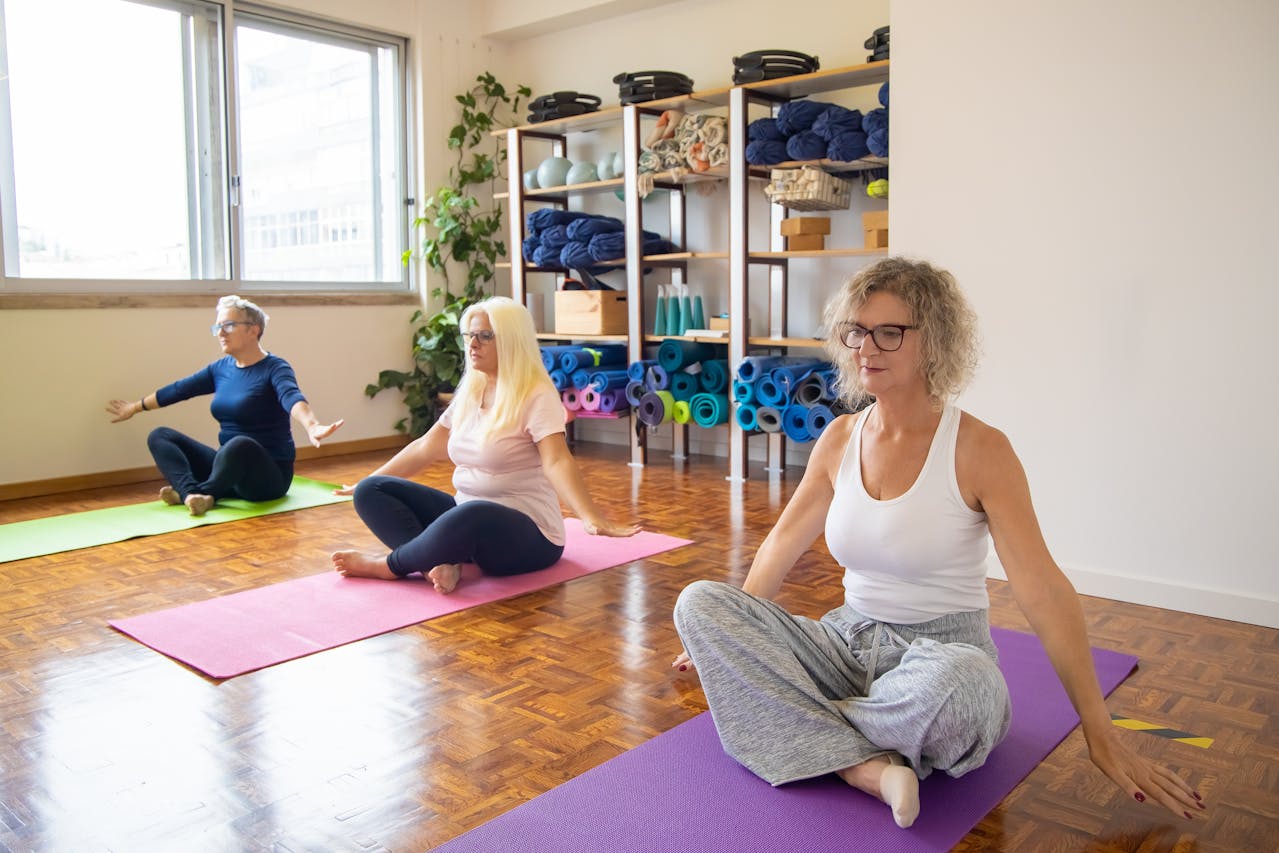
Many people associate yoga primarily with stretching and flexibility, but it also builds strength. Yoga poses engage various muscle groups, helping to tone and strengthen the body. For seniors, increased muscle strength is crucial for performing daily activities, such as climbing stairs or carrying groceries. A stronger body can lead to greater independence and confidence in physical abilities, allowing seniors to maintain an active lifestyle. This increased strength can also contribute to better posture and reduced strain on joints, further enhancing overall physical well-being.
5. Enhances Respiratory Function
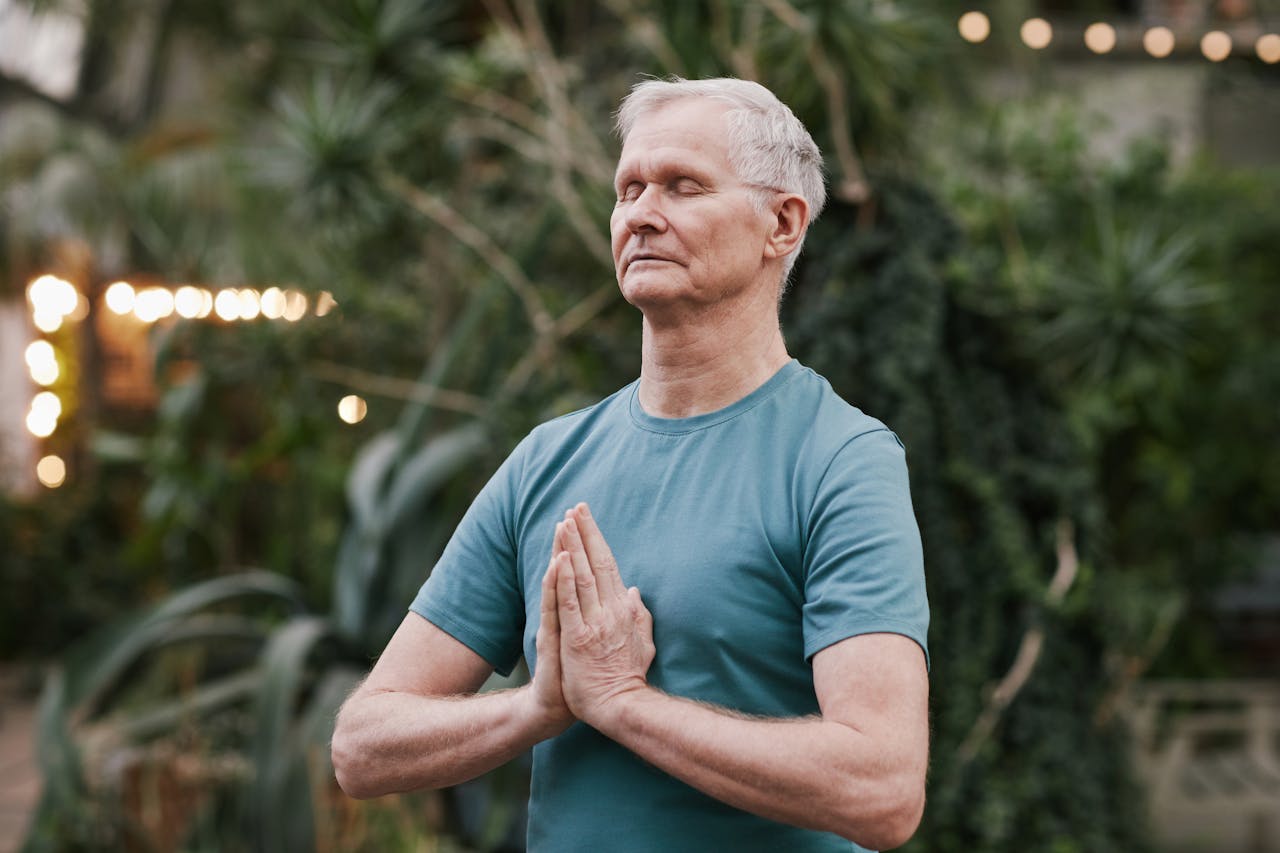
Breath is central to yoga practice, and this focus on breathing has profound benefits for seniors. Deep, controlled breathing exercises improve lung capacity and oxygen intake, which can be particularly beneficial for those with respiratory issues. Improved respiratory function enhances overall vitality and can lead to better energy levels. Additionally, the breathing techniques learned in yoga can help reduce feelings of stress and anxiety, contributing to a greater sense of well-being. As seniors become more aware of their breath, they may also find it easier to manage symptoms related to chronic conditions, further supporting their health.
6. Promotes Better Sleep
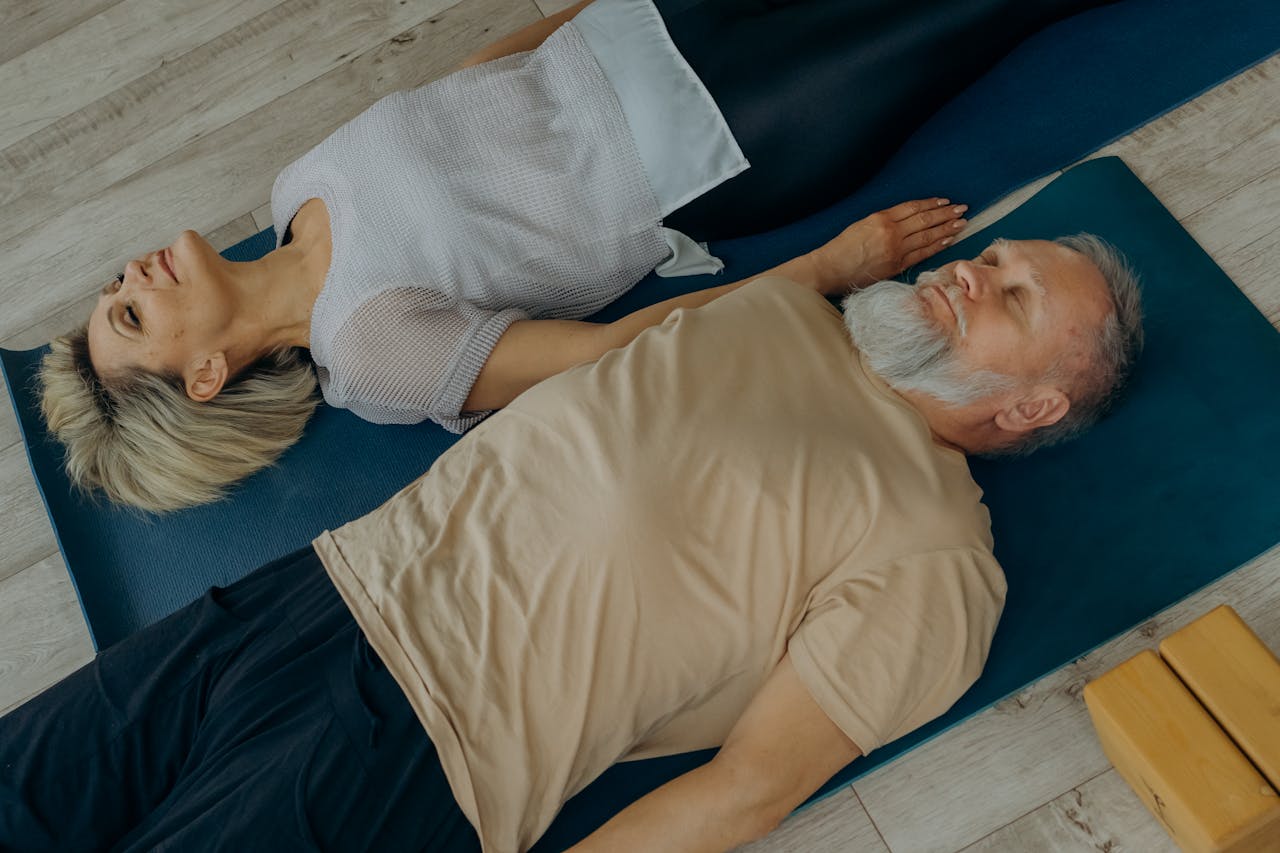
Sleep patterns often change as we age, with many seniors struggling to achieve restful sleep. Yoga can be a natural remedy for sleep disturbances. The calming effects of yoga help relax the mind and body, making it easier to fall asleep and stay asleep. Gentle yoga practices, particularly those focused on relaxation and mindfulness, can help prepare the body for sleep by reducing tension and promoting a sense of calm. As a result, seniors who incorporate yoga into their routine often find that they sleep more soundly and wake up feeling refreshed. Improved sleep can have a cascading effect on overall health, boosting mood, energy levels, and cognitive function.
7. Boosts Mental Clarity and Focus

As we age, cognitive function can decline, leading to forgetfulness and difficulty concentrating. Yoga supports mental clarity and focus through its emphasis on mindfulness and meditation. By cultivating a greater awareness of the present moment, seniors can improve their cognitive abilities and enhance their memory. The mental discipline developed through yoga can help seniors stay engaged and focused, contributing to a sharper mind and better decision-making skills. This enhanced cognitive function can lead to greater confidence in social interactions and daily tasks, empowering seniors to remain active participants in their communities.
8. Supports Heart Health
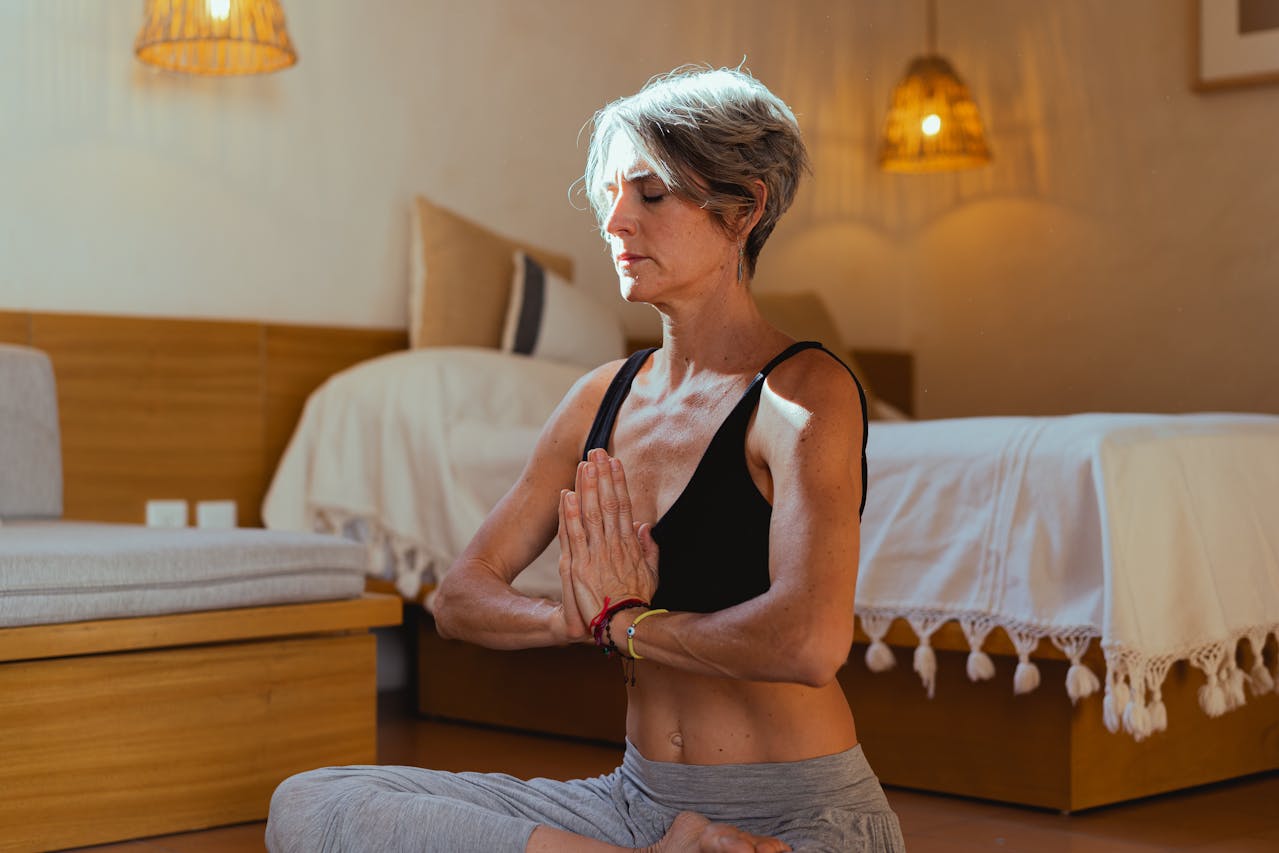
Heart health is a critical concern for seniors, as cardiovascular diseases are prevalent in older populations. Yoga can be a valuable addition to a heart-healthy lifestyle. Research has shown that regular yoga practice can help lower blood pressure, reduce cholesterol levels, and improve circulation. The relaxation response triggered by yoga also decreases stress hormones, which can negatively impact heart health. By supporting overall cardiovascular wellness, yoga can help seniors maintain a healthier heart and reduce their risk of heart disease. This preventive approach to heart health is essential for seniors aiming to enjoy a long and active life.
9. Fosters a Sense of Community
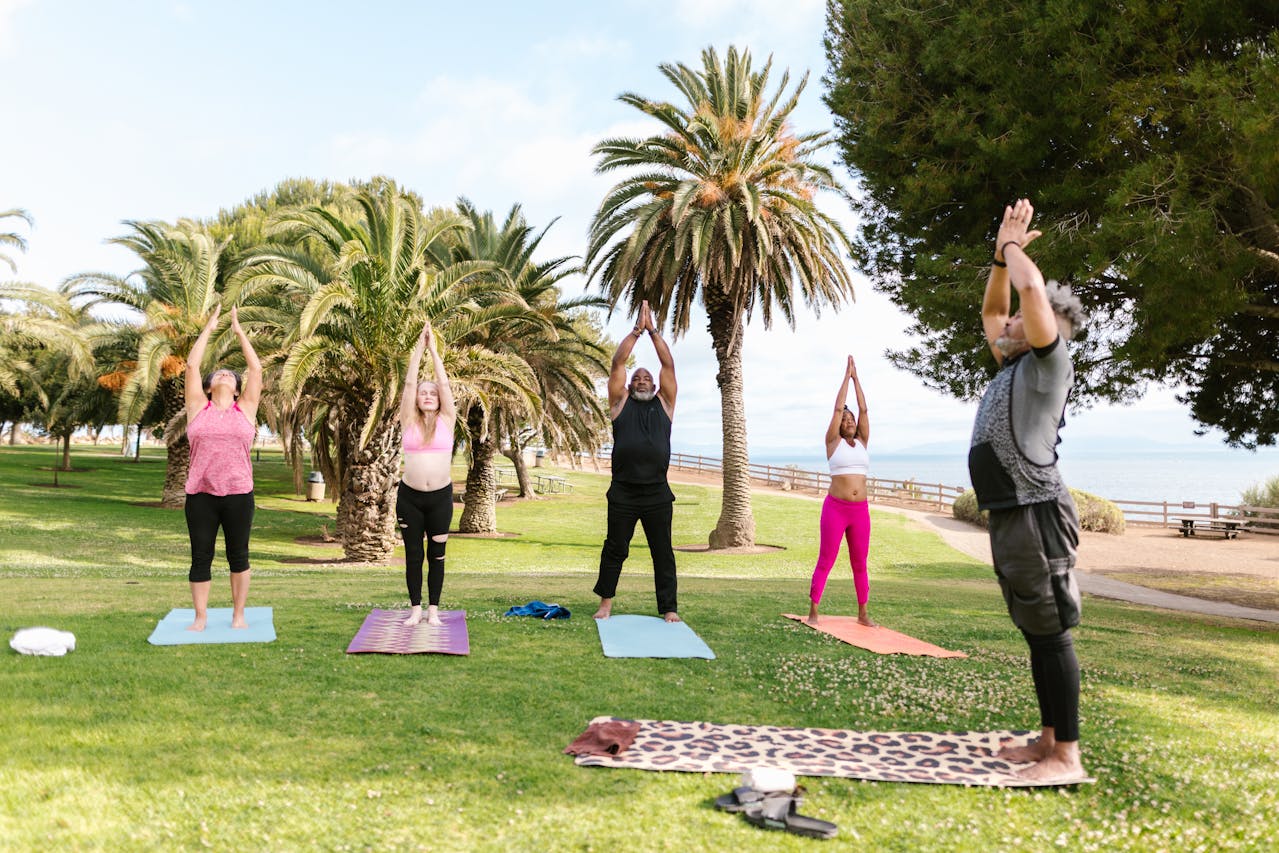
Participating in yoga classes can provide seniors with a sense of belonging and community. Many seniors face isolation and loneliness, particularly if they have lost loved ones or are living alone. Joining a yoga class allows seniors to connect with others who share similar interests and goals. This social aspect of yoga can enhance emotional well-being, combat feelings of loneliness, and create lasting friendships. A supportive community can also encourage seniors to stay committed to their yoga practice, further enhancing its benefits. Building connections in a yoga class can help seniors feel more engaged in their lives, fostering a positive social environment.
10. Enhances Emotional Well-Being
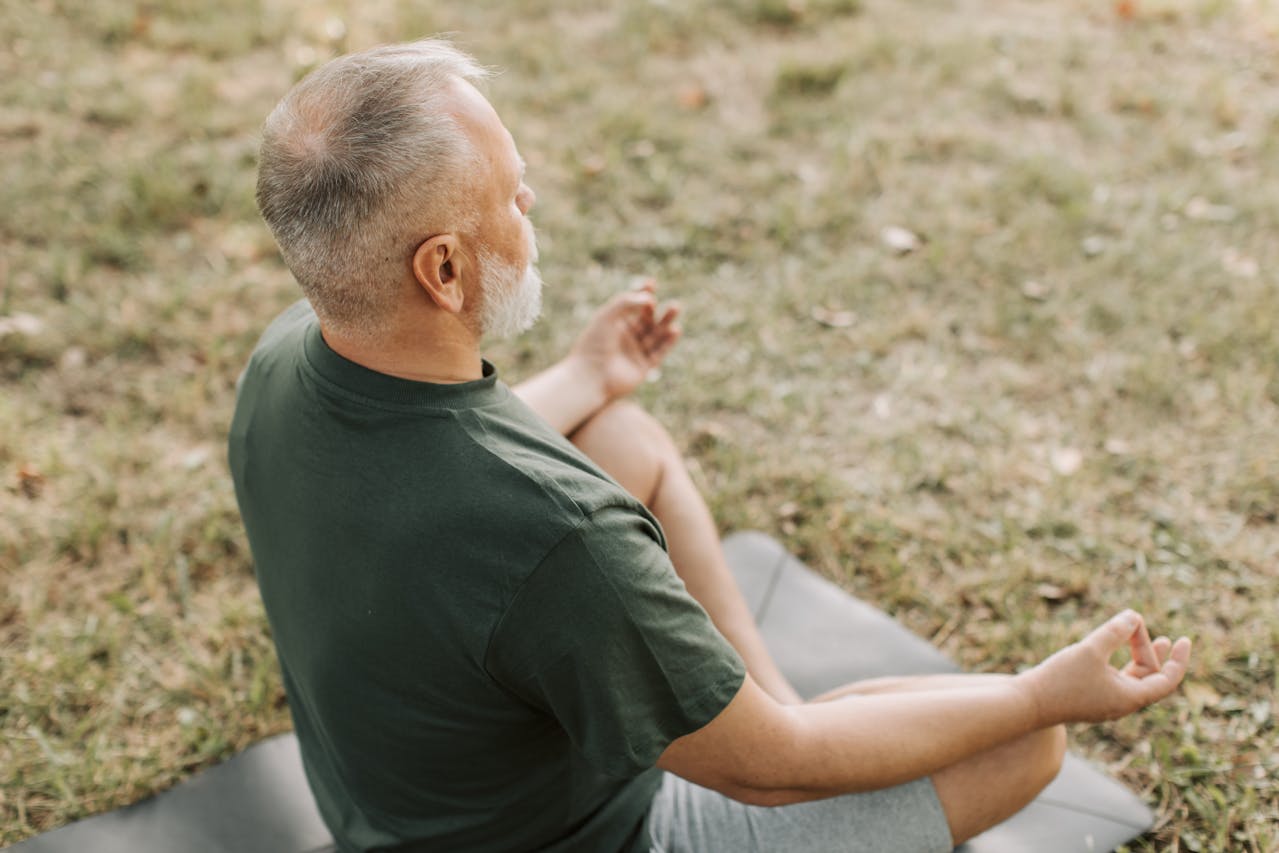
Yoga is known to improve emotional health by promoting a sense of inner peace and self-acceptance. The practice encourages mindfulness, which helps individuals become more aware of their thoughts and feelings without judgment. For seniors, this can be particularly beneficial as they navigate the challenges that come with aging. Yoga fosters a positive outlook on life, helping seniors develop resilience in the face of adversity. By improving emotional well-being, yoga can contribute to a higher quality of life and greater satisfaction in everyday living. This enhanced emotional resilience can empower seniors to approach life’s challenges with greater confidence and grace.
11. Reduces Pain and Discomfort
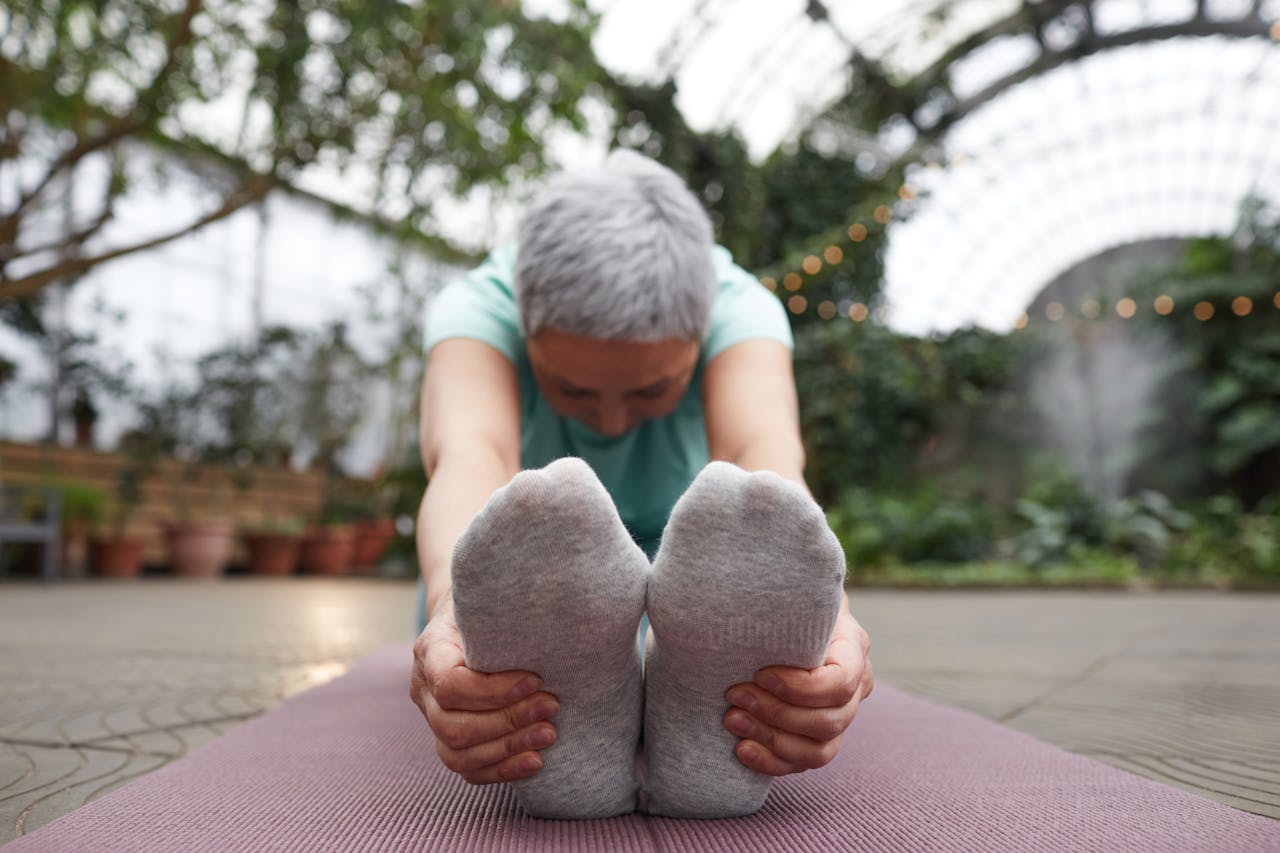
Chronic pain is a common issue among seniors, impacting their daily lives and overall quality of life. Yoga can be an effective way to manage pain through its gentle movements and stretches. The practice promotes increased blood flow, which can alleviate tension and reduce discomfort. Additionally, yoga encourages awareness of the body, helping seniors learn to recognize and respond to their pain in healthier ways. Many seniors find that regular yoga practice can significantly reduce their reliance on pain medications and improve their overall comfort. By managing pain through yoga, seniors can regain control over their lives and engage in activities they enjoy.
12. Encourages Mind-Body Connection

Finally, yoga encourages a deeper connection between the mind and body, which can be particularly beneficial for seniors. This holistic approach to health allows individuals to become more in tune with their physical sensations, emotions, and thoughts. By fostering this mind-body connection, yoga can help seniors develop a greater understanding of their bodies and their needs. This awareness can lead to healthier lifestyle choices and a more positive relationship with oneself, contributing to overall well-being. As seniors cultivate this connection, they may discover new ways to nurture their health, enhancing their quality of life in meaningful ways.
Final Thoughts
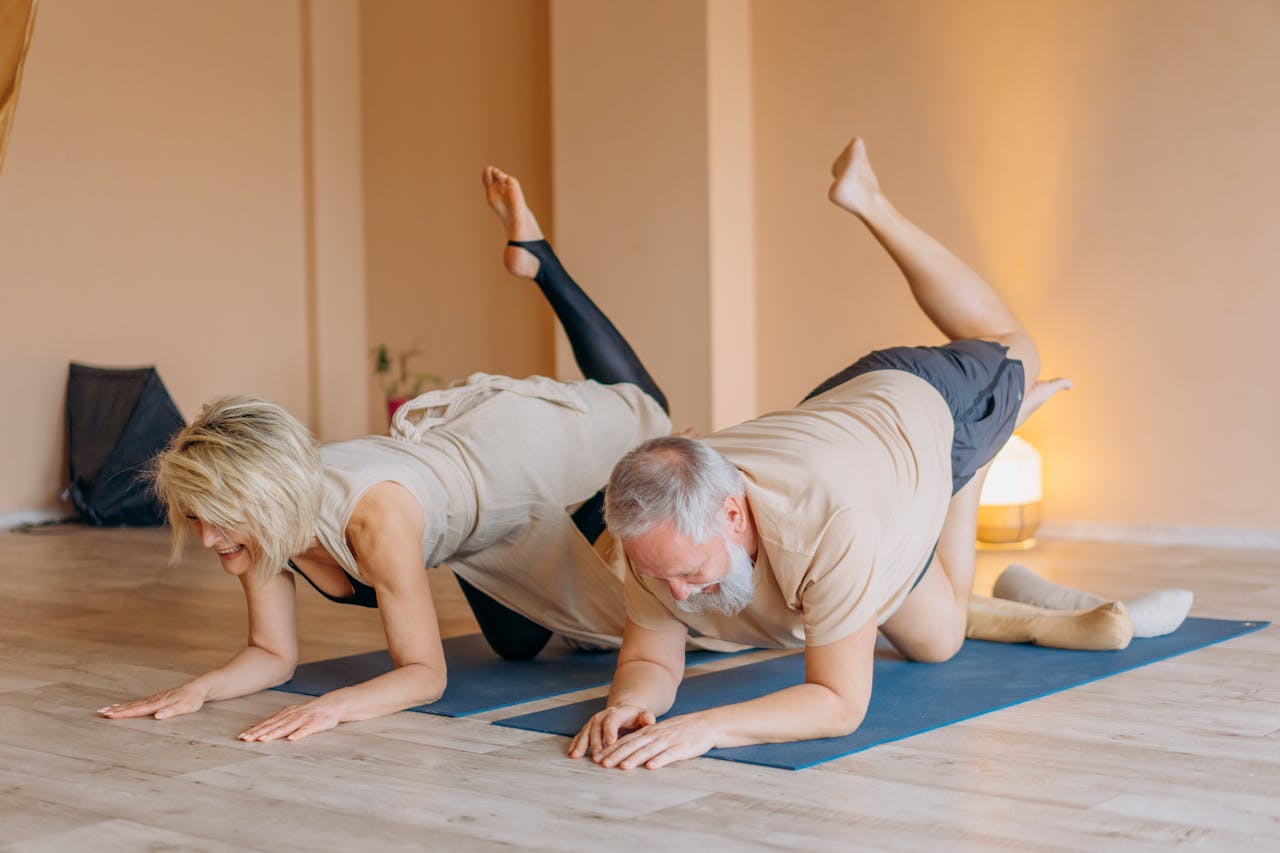
Incorporating yoga into a senior’s routine can lead to transformative benefits that enhance both physical and mental health. From improved flexibility and strength to reduced stress and better sleep, the advantages of yoga are far-reaching. As seniors seek ways to maintain their independence and improve their quality of life, yoga emerges as a powerful tool for promoting health and well-being. Whether practiced in a class or at home, yoga can provide seniors with the support they need to thrive in their golden years. If you or a loved one are considering yoga, consult with a healthcare professional to find a program that suits your individual needs and abilities. Embracing yoga not only offers numerous health benefits but also provides a fulfilling path to a happier and healthier life.
Leave a Reply